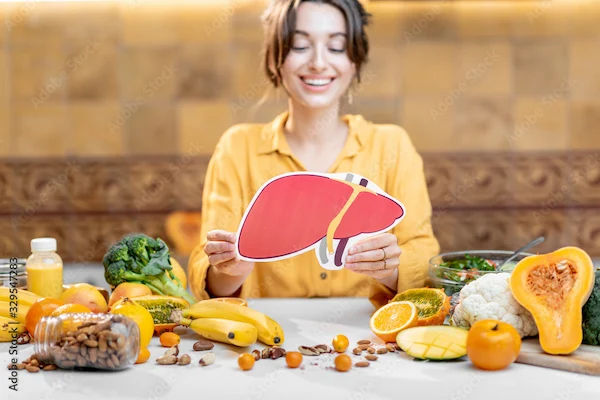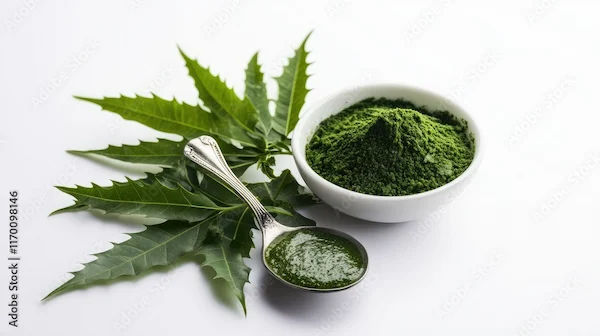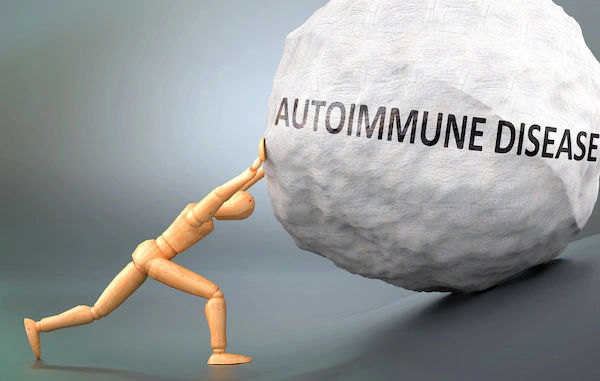Guide to Viral Fever What Foods Avoid Reduce Risk Illness
Recover faster from viral fever by avoiding foods that slow healing. Learn why dairy, fried foods, sugar, caffeine, and more can worsen symptoms, plus healthier alternatives to support your immune system.


Viral fever is a common yet debilitating illness characterised by a sudden spike in body temperature, body aches, fatigue, and weakness. While rest and hydration are paramount, what you eat plays a crucial role in your recovery speed. The wrong foods can overtax your digestive system, weaken your immune response, and even prolong your illness. This comprehensive guide delves into the essential foods to avoid during a viral fever. We'll explore the science behind these dietary restrictions and provide practical advice to help you navigate your meals, ensuring your body has the energy and resources it needs to fight off the infection effectively. By understanding what to steer clear of, you can significantly reduce your discomfort and get back on your feet faster.
Understanding Viral Fever and Nutrition
What Happens to Your Body During a Fever?
When a virus invades your body, your immune system launches a counterattack. A key weapon in this fight is the fever itself. Your hypothalamus, the body's thermostat, raises your core temperature to create an inhospitable environment for the virus, slowing its replication. This heightened metabolic state increases your body's demand for energy and fluids. Simultaneously, your digestive system often slows down as energy is diverted to the immune response. This is why forcing heavy or complex foods can lead to indigestion, nausea, and added discomfort.
The Role of Diet in Immune Support
Nutrition isn't just about calories; it's about information. The right foods provide the essential vitamins, minerals, and antioxidants your white blood cells need to function optimally. *Antiviral nutrition strategies focus on easy-to-digest, nutrient-dense foods that support this process without causing inflammation or digestive stress. Conversely, the wrong foods can suppress immune function and fuel inflammation, hindering your recovery.
Top Foods to Avoid During a Viral Fever
Dairy Products: Milk, Cheese, and Yoghurt
- Why to Avoid: This is a classic piece of advice for a reason. Dairy products like milk and cheese are known to increase the production of mucus in the respiratory and digestive tracts. When you already have a congested nose, cough, or sore throat, consuming dairy can thicken existing phlegm, making it more difficult to expel and exacerbating congestion. While some argue that yoghurt provides probiotics, its mucus-producing effect can outweigh the benefits for many during the acute phase of a fever.
- What to have instead: Opt for plant-based milks like almond, oat, or coconut milk, which are lighter and less likely to promote mucus.
Fried and Greasy Foods
- Why to Avoid: French fries, fried chicken, samosas, and other greasy foods are incredibly difficult to digest. They require your digestive system to work overtime, diverting precious energy away from your immune system's critical battle. Furthermore, these foods are often pro-inflammatory, which can worsen the overall inflammatory response already occurring in your body due to the infection. This can lead to increased body aches and fatigue.
- What to have instead: Choose baked, steamed, or boiled foods. A simple baked sweet potato or steamed vegetables is a far better choice.
Sugary Foods and Refined Carbohydrates
- Why to Avoid: Sugar is a known immune suppressor. Studies have shown that consuming large amounts of sugar can impair the ability of white blood cells to engulf and destroy bacteria and viruses. This effect can last for several hours after ingestion. Avoid sodas, packaged fruit juices, candies, pastries, and white bread. These cause a rapid spike and crash in blood sugar, sapping your energy levels further.
- What to have instead: If you need a sweet fix, choose natural sources like a small amount of honey (which can also soothe a sore throat) or fruits.
Processed and Packaged Foods
- Why to Avoid: Processed foods are typically loaded with sodium, preservatives, and artificial additives. Your body, already stressed from fighting the virus, does not need the additional burden of processing these chemicals. High sodium can also lead to dehydration, which is a significant risk during a fever when you are losing fluids through sweat.
- What to have instead: Stick to whole, single-ingredient foods. A simple bowl of chicken soup or khichdi (a lentil and rice porridge) is ideal.
Caffeinated Beverages
- Why to Avoid: Coffee, strong tea, and energy drinks act as diuretics, meaning they increase urine production and can lead to dehydration. Maintaining hydration is one of the most critical aspects of fever management. Caffeine can also overstimulate your system, potentially interfering with rest and sleep, which are vital for recovery.
- What to have instead: Herbal teas like ginger, peppermint, or chamomile are excellent choices. They are hydrating and can offer additional soothing benefits.
Spicy and Acidic Foods
- Why to Avoid: While mild spices like turmeric and ginger can be beneficial, excessively spicy foods can irritate an already sensitive digestive system and potentially worsen an upset stomach. Highly acidic foods like citrus juices (e.g., orange juice) and tomatoes can irritate a sore throat, causing a stinging pain. The high sugar content in many fruit juices is also a concern.
- What to have instead: If you want vitamin C, opt for less acidic sources like bell peppers or papaya, or dilute citrus juice significantly with water.
Raw Vegetables and Salads
- Why to Avoid: This might seem counterintuitive, as vegetables are healthy. However, raw vegetables are high in insoluble fibre, which is difficult to digest. During an illness, your gut may struggle to break them down, leading to gas, bloating, and abdominal cramps.
- What to have instead: Cook your vegetables! Steaming or boiling them softens the fibre, making them much easier on your digestive system while retaining their nutrients.
Alcohol and Tobacco
- Why to Avoid: Alcohol dehydrates the body, taxes the liver (which is already busy filtering toxins from the infection), and severely weakens the immune system. Tobacco smoke irritates the respiratory tract, worsening cough and congestion, and impairs the immune response in the lungs.
- What to have instead: This is non-negotiable. Avoid completely until you have fully recovered.
Red Meat and Processed Meats
- Why to Avoid: Red meats (beef, lamb) and processed meats (sausages, bacon) are high in saturated fats and are protein-dense, making them hard to digest. The body expends a significant amount of energy breaking them down. They can also be pro-inflammatory for some individuals.
- What to have instead: If you crave protein, choose lighter options like boiled chicken, eggs, or lentils in a soupy form.
Nuts and Certain Seeds
- Why to Avoid: Although nuts are nutrient powerhouses, they are also high in fat and can be difficult to digest during an illness. They can also be somewhat drying, which is not ideal when you need to stay hydrated.
- What to have instead: If you need the nutrition, consider a very small handful or opt for nut butters thinned out into a smoothie or soup.
What to Eat Instead: Building a Recovery Diet
Focus on the BRAT diet (Bananas, Rice, Applesauce, Toast) for the first 24 hours if your stomach is very upset, then gradually expand to include:
- Broths and Soups: Chicken soup, vegetable broth, and bone broth provide hydration, electrolytes, and easy-to-absorb nutrients.
- Herbal Teas: Ginger tea (anti-nausea), peppermint tea (soothing), and chamomile tea (calming).
- Soft Fruits: Bananas, cantaloupe, and watermelon provide vitamins and hydration.
- Easy-to-Digest Carbs: Oatmeal, porridge, khichdi, and plain crackers.
- Lean Proteins: Soft-boiled eggs, steamed chicken, and well-cooked lentils.
Conclusion
Navigating a viral fever is challenging, but making smart dietary choices can significantly influence your comfort and recovery time. By consciously avoiding foods that promote inflammation, suppress immunity, or are difficult to digest, you allow your body to focus its entire energy on fighting the virus. Remember, the goal is to nourish with ease. Stick to simple, wholesome, and hydrating foods like broths, herbal teas, and soft fruits. Listen to your body's cues—it will often tell you what it needs. If your symptoms persist or worsen, always consult a healthcare professional. Here's to making choices that support a swift and smooth recovery.
Consult a Specialist for Personalised Advice
Consult a Specialist for Personalised Advice

Dr. Anand Ravi
General Physician
2 Years • MBBS
Bengaluru
PRESTIGE SHANTHINIKETAN - SOCIETY CLINIC, Bengaluru

Dr Syed Mateen Pasha
General Physician
2 Years • MBBS
Bengaluru
PRESTIGE SHANTHINIKETAN - SOCIETY CLINIC, Bengaluru

Dr. Vivek D
General Physician
4 Years • MBBS
Bengaluru
PRESTIGE SHANTHINIKETAN - SOCIETY CLINIC, Bengaluru

Dr. Ashita Kuruvilla
General Physician/ Internal Medicine Specialist
7 Years • MBBS
East Midnapore
VIVEKANANDA SEBA SADAN, East Midnapore

Dr. Debdatta Pati
Psychiatrist
18 Years • MBBS, DPM, MD (PSYCHIATRY)
Kolkata
MCR SUPER SPECIALITY POLY CLINIC & PATHOLOGY, Kolkata




